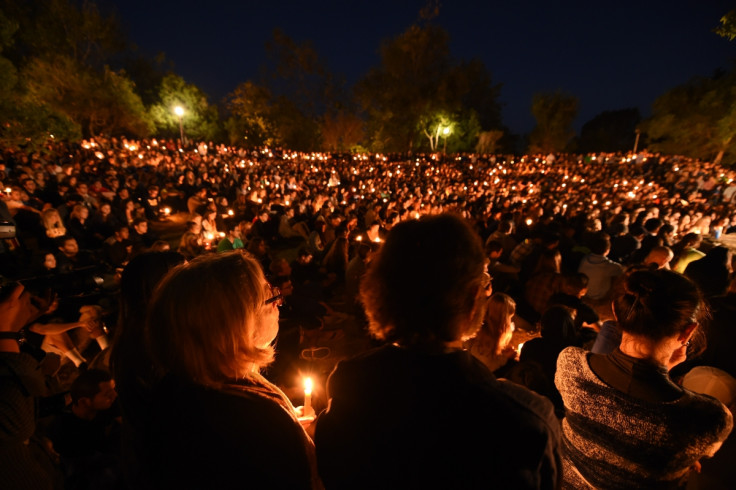#YesAllWomen: Why this Hashtag is Vital for Women's Rights

"I don't know why you girls have never been attracted to me, but I will punish you all for it, It's an injustice, a crime, because I don't know what you don't see in me. I'm the perfect guy, and yet you throw yourselves at all these obnoxious men, instead of me, the supreme gentleman."
These are the words of Elliot Rodger, a 22-year-old British-born man who went on a murderous rampage in Santa Barbara that left six people dead and more injured. In the hours before the killing spree, Rodger uploaded a video to YouTube titled Retribution. In the clip, and in a 140-page manifesto published online, Rodger claimed he was going to prove himself the ultimate "alpha male" – and "slaughter every single spoiled, stuck-up, blonde slut I see."
Aside from raising questions about America's gun culture and healthcare system, the mass murder has brought the role of misogyny and women's rights to global attention. Twitter reacted with the hashtag #YesAllWomen, as women all over the world took to the social network to share their harrowing experiences. Days later, #YesAllWomen – a reversal of the response "Not All Men", which is used as a backlash when women share their experiences of sexism online – is still trending.
Twitter has fast become a powerful tool for activism, and this most recent campaign is a prime example of how social media has become a vital instrument for feminism and women's rights. #YesAllWomen has received thousands of responses, which are equally moving, terrifying, shocking, enraging and perceptive. Each one is testament to those killed and injured on Rodger's rampage, and each tweet is gradually building a long-standing memorial: A demand for both women and men to be treated equally.
Rodger's manifesto is both chilling and saddening. Far from just the railings of a mad man, he voices established ideologies. Beneath the onslaught of misogyny and hatred, there is an overwhelming sense of entitlement, patriarchal control and women, as a sex, indebted to men. Rodger talks of subordinating women, ridding them of their sexuality, sexual violence and shame – "Stupid sluts get what they deserve."
And what is particularly saddening, is that these ideologies are in fact reality, as evidenced on Twitter:
Not all men touch up women without consent in a club, but all women have been touched up without consent in a club #YesAllWomen
Women don't need to learn self-defence, men need to learn self-control. The fact that this is actually an argument is sad #YesAllWomen
#NotAllMen are violent against women, but if we are just passive bystanders then we're still part of the problem. #YesAllWomen
For men complaining about the #YesAllWomen campaign: you were clearly asking for it
Because I'm taught to just "ignore it" when a random man whistles at me, but he isn't taught not to do things like that #YesAllWomen
Rodger's beliefs are bizarre and extreme, but underneath the rage and violence is the well-established belief of alpha masculinity and submissive femininity. Sexual aggression is validated when women reject men. Women are mere objects. Rodger's views, while in the extreme, are still on the same wavelength as general misogynistic beliefs held by many.
While providing a platform for women to share their experiences of sexism, it is equally important that #YesAllWomen is used by men. Those who have joined in the campaign include Neil Gaiman, who tweeted: "The #YesAllWomen hashtag is filled with hard, true, sad and angry things. I can empathise & try to understand & know I never entirely will."
Yet the fact that users of the hashtag have become the target of death threats by internet trolls just goes to show that we are still uncomfortable with highlighting the truth of misogyny. This shows why #YesAllWomen is necessary. While Rodger has gained infamy for his murders and ideologies, the hashtag offers a counter-argument to the predominant cultural attitudes that formed the basis for his attacks.
© Copyright IBTimes 2025. All rights reserved.




















